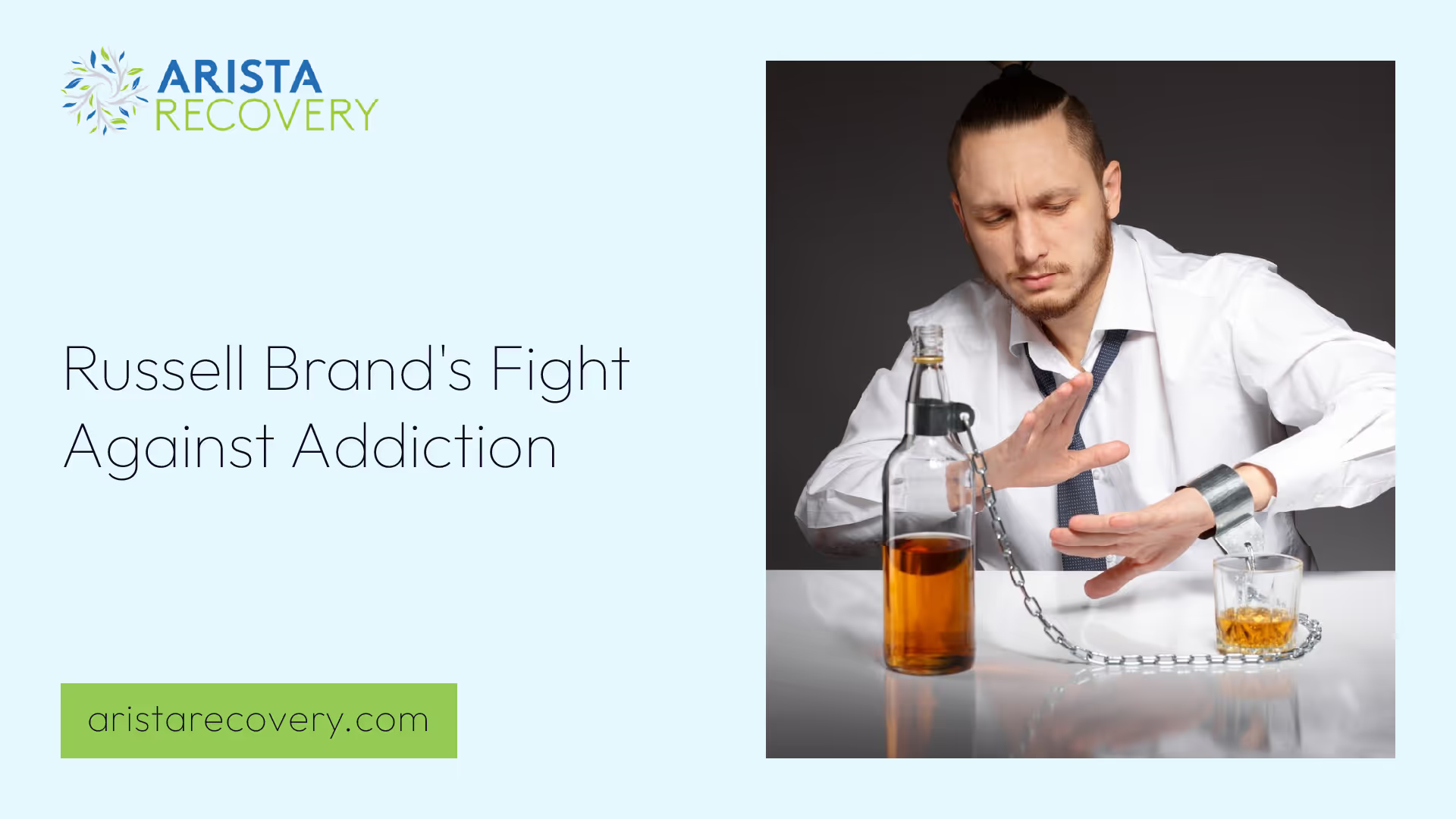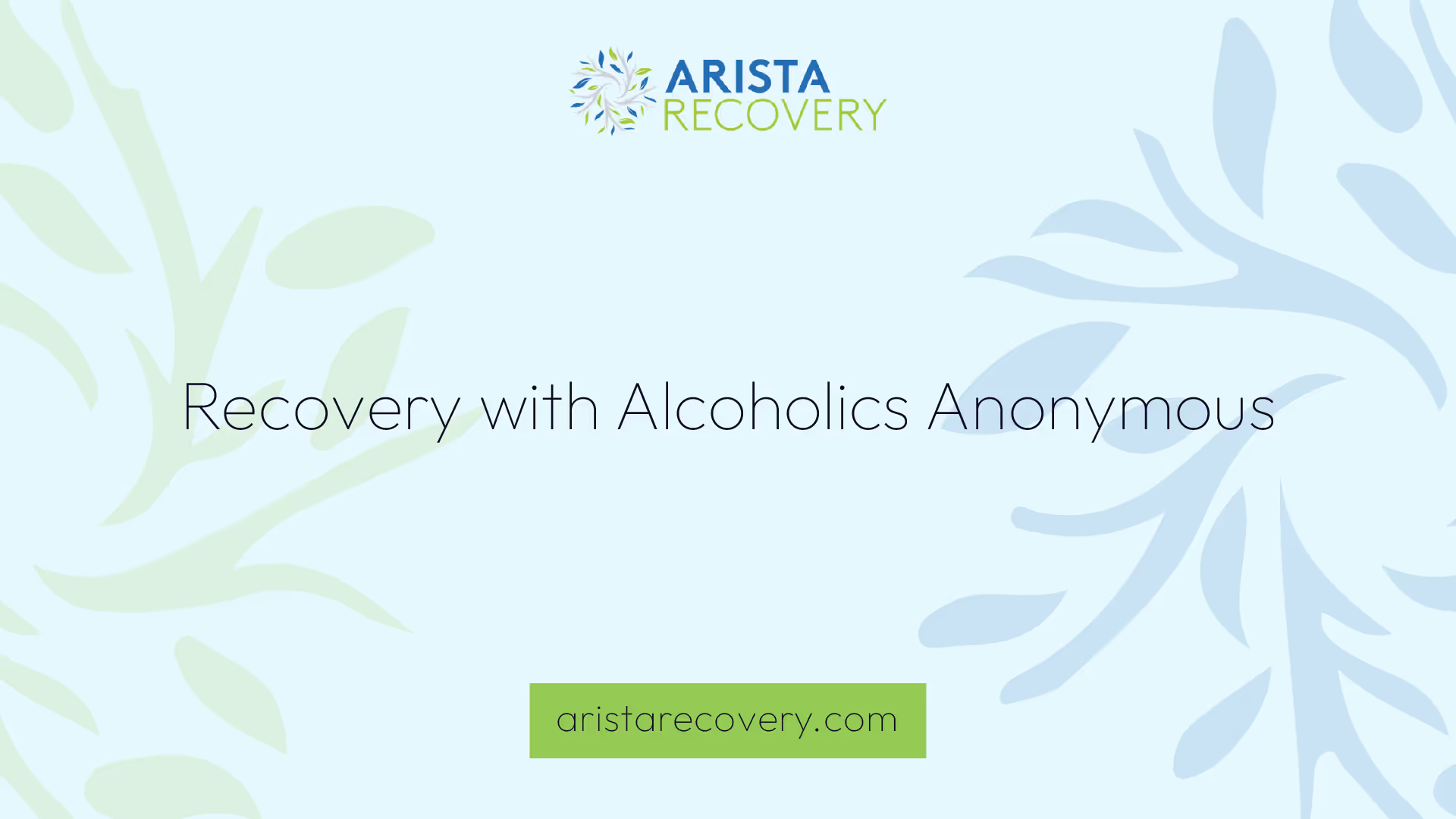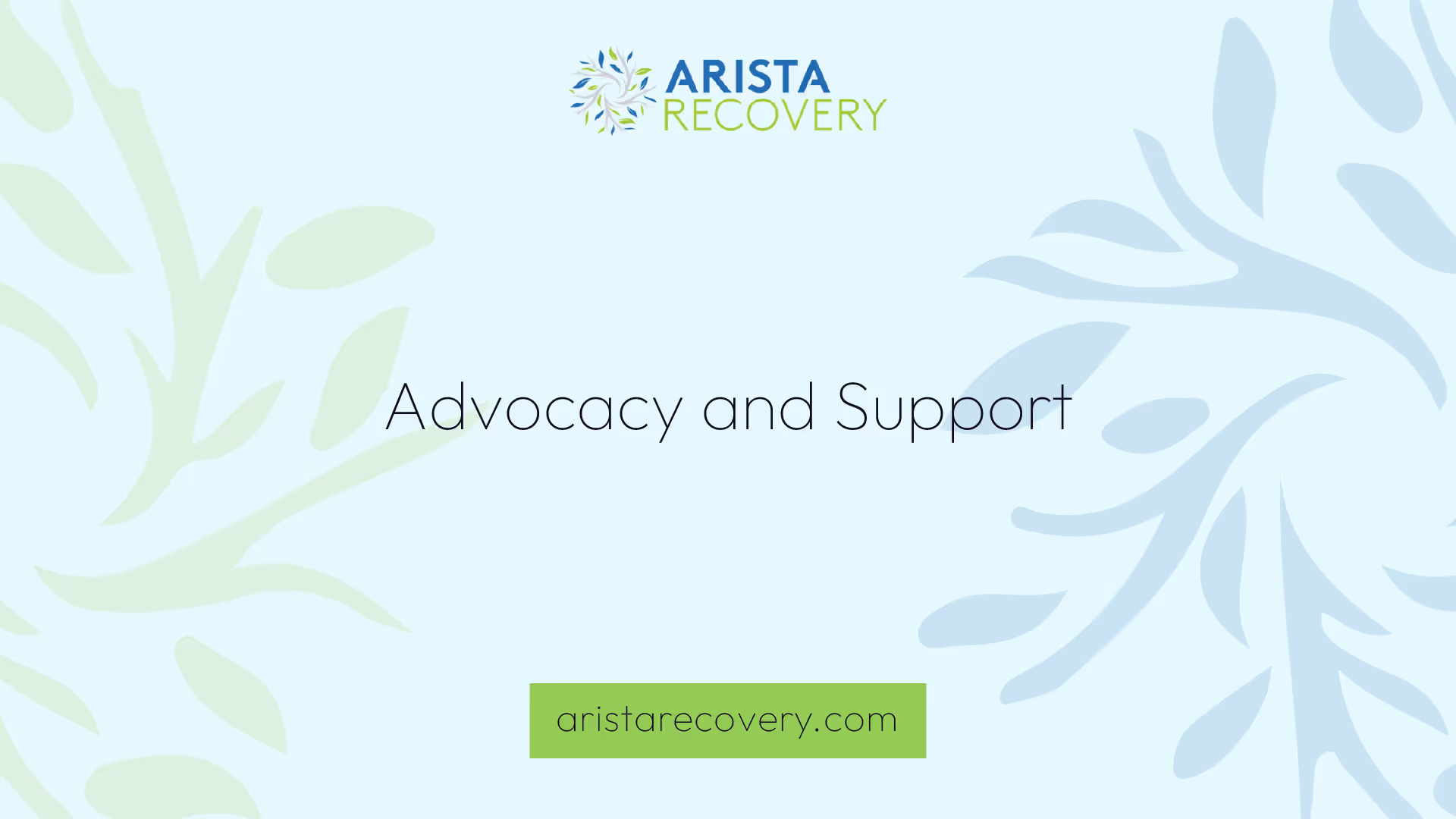Russell Brand's Fight Against Addiction


Russell Brand's Journey
Early Struggles with Addiction
Russell Brand faced numerous battles with addiction throughout his life. His issues included eating disorders, pornography addiction, excessive drug and alcohol use, and a pattern of sex addiction. He often used these addictions as a means to cope with deeper emotional challenges [1].
Brand's substance abuse became particularly severe with heroin, which he struggled with for four years beginning in 1999. This addiction had significant consequences, leading to the loss of various opportunities, including a job at MTV and relationships. Over the course of his struggles, Brand was arrested 12 times [1].
Addiction TypeYears ActiveConsequencesHeroin1999 - 2003Lost job, relationships, arrested 12 timesAlcohol and Drugs-Public arrests, personal lossEating Disorders-Emotional coping mechanismPornography and Sex-Emotional coping mechanism
Turning Point and Decision for Recovery
In 2003, at the age of 27, Brand reached a crucial turning point. Following warnings from his friend and manager about the potential outcomes of his addiction—prison, death, or psychiatric care—he recognized the urgent need for change. This realization prompted him to seek help and ultimately led to his decision to pursue sobriety [1].
Brand entered the Alcoholics Anonymous program in the same year, marking the start of his battle against addiction. His experience in AA played a pivotal role in his recovery, and he credits the program for helping him maintain his sobriety. Notably, Alcoholics Anonymous has reported that 22% of its participants manage to stay sober for 20 years or more.
Brand’s decision to seek recovery not only changed his life but also allowed him to reflect on how different his life could have been had he not made that choice. He acknowledged the possibility of becoming a hopeless heroin addict living with his mother or potentially overdosing [2].

Recovery with Alcoholics Anonymous
Embracing the 12-Step Program
Russell Brand entered the Alcoholics Anonymous (AA) program in 2003 as a method to confront his addiction struggles. He credits his recovery directly to his involvement in this widely recognized twelve-step program. The twelve steps promote a structured approach to overcoming addiction, encouraging individuals to acknowledge their challenges and seek support from a higher power, as well as their peers.
Brand's journey through the 12-step program emphasizes the importance of daily commitment to recovery. He highlights that recovery is not a one-time event but an ongoing process that requires continuous effort and self-reflection. This approach allows individuals to address the root causes of their addiction while exploring new coping mechanisms to replace harmful behaviors.
Impact of Alcoholics Anonymous
Alcoholics Anonymous has shown significant effectiveness in supporting individuals in their recovery journeys. Reports indicate that 22% of participants manage to stay sober for 20 years or more. With over 115,000 groups worldwide, AA has provided a community of support for millions seeking to overcome addiction.
The program's structure not only helps individuals like Brand in their personal recovery but also fosters a sense of belonging and shared experiences among participants. Brand has been vocal about the positive impact of AA, utilizing his platform to discuss the life-changing benefits of the program and to encourage others to seek help. His book, "Recovery: Freedom From Our Addictions," reinterprets the 12 steps in a non-secular manner, aiming to reach a broader audience and reduce the stigma surrounding addiction recovery.
Through sharing his experiences and promoting the principles of Alcoholics Anonymous, Brand has inspired many individuals facing similar challenges, reinforcing the notion that recovery is possible with the right support and dedication.

Advocacy and Support
Building a Recovery Community
Russell Brand has dedicated significant efforts to building a supportive community for individuals struggling with addiction. He emphasizes the importance of connection and shared experiences among those in recovery. By creating platforms where individuals can come together, Brand aims to foster an environment of understanding and empathy.
Brand's advocacy includes the use of social media and public speaking engagements to raise awareness about addiction and recovery. He encourages individuals to share their stories, which can help reduce the stigma associated with addiction. This communal approach not only provides support but also empowers individuals to take charge of their recovery journeys.
A key part of this community-building effort involves promoting resources such as support groups and recovery programs. By directing individuals towards these resources, Brand helps facilitate access to necessary support systems that can aid in the recovery process.
Decriminalization and Advocacy Efforts
Russell Brand is a strong advocate for the decriminalization of addictive substances. He believes that addiction should be treated as a disease rather than a criminal offense. This perspective challenges the current legal framework surrounding drug use and emphasizes the need for compassion and understanding in addressing addiction.
Brand criticizes existing drug laws and the societal stigma that many individuals face due to their addiction. He highlights high-profile cases, such as the death of actor Philip Seymour Hoffman, to illustrate the consequences of punitive measures rather than supportive legislation.
Brand's advocacy efforts aim to shift public perception and encourage lawmakers to implement more understanding legislation. By raising awareness about the complexities of addiction, he seeks to promote a more compassionate approach that prioritizes treatment and rehabilitation over punishment.
Advocacy FocusDescriptionBuilding CommunityFostering connections among individuals in recovery through shared experiences and support systems.DecriminalizationPromoting the idea that addiction is a disease requiring treatment rather than a criminal offense.Raising AwarenessUtilizing public platforms to challenge societal stigma and advocate for compassionate legislation.
Through these efforts, Russell Brand continues to be a dedicated ally to those in recovery, aiming to create a more supportive and understanding environment for individuals grappling with addiction.
Brand's Impact and Legacy
Russell Brand's journey through addiction has not only transformed his own life but has also had a significant impact on others facing similar struggles. His dedication to sharing recovery methods and inspiring others in their healing journeys has created a lasting legacy in the realm of addiction recovery.
Sharing Recovery Methods
Brand is well-known for his candidness about his time in Alcoholics Anonymous and the profound influence it has had on his life. He authored the book Recovery: Freedom From Our Addictions, which reconstructs the 12 steps in a way that resonates with a broader audience. This non-secular approach aims to break down the stigma surrounding addiction and encourages individuals to seek help without fear or shame.
In addition to his writing, Brand launched a fund within Comic Relief called "Give It Up." This initiative raises awareness and funds for abstinence-based recovery, particularly after the tragic death of Amy Winehouse. The fund's purpose is to support those struggling with addiction by providing resources that facilitate recovery.
Inspiring Others in Recovery
Brand's commitment to advocacy extends beyond his personal experiences. He actively engages in discussions with lawmakers about updating drug laws, seeking to create a more supportive environment for those battling addiction [2]. His recognition from spiritual leaders, such as the Dalai Lama, highlights the respect he has garnered within the recovery community and beyond.
Despite having overcome his struggles with addiction many years ago, Brand remains devoted to using his platform as a comedian, author, actor, and podcaster to motivate others. He continues to inspire individuals at various stages of their recovery journeys, proving that it is possible to overcome adversity and lead a fulfilling life [3].
The impact of Russell Brand's work in the addiction recovery field is profound. Through sharing his recovery methods and inspiring countless individuals, he has become a beacon of hope for those navigating their own paths to recovery.
Understanding Addiction
Root Causes of Addiction
Addiction often stems from a combination of psychological, emotional, and environmental factors. In the case of Russell Brand, his struggles with addiction began with behaviors such as obsessive consumption of chocolate and bulimia. These early behaviors were rooted in a lonely childhood, characterized by challenges including his mother's health issues and experiences of trauma. This environment led him to seek external means to fill an internal void, ultimately resulting in a transition to drug use.
Many individuals facing addiction share similar experiences, where feelings of isolation, trauma, and unmet emotional needs contribute to their reliance on substances. Russell Brand emphasizes that drugs and alcohol are not the core problems; rather, they are solutions to a deeper issue—reality itself. This perspective highlights the need for understanding the underlying factors that contribute to addictive behaviors.
Contributing FactorsDescriptionPsychological TraumaExperiences of trauma can lead individuals to seek relief through substances.Emotional IsolationFeelings of loneliness and lack of support can trigger addictive behaviors.Unmet NeedsA desire to fill an internal void often drives individuals to substance use.
Importance of Support Systems
Support systems play a crucial role in the recovery journey from addiction. Russell Brand advocates for viewing individuals with addiction as sick rather than bad, emphasizing compassion and understanding as vital components of recovery. Having a strong support network can significantly enhance a person's ability to overcome addiction and maintain long-term sobriety.
Support can come from various sources, including family, friends, and organized groups such as Alcoholics Anonymous. These networks provide emotional encouragement, practical assistance, and a sense of belonging, all of which are essential for individuals working to navigate their recovery.
Types of Support SystemsBenefitsFamily SupportOffers emotional backing and understanding during difficult times.Peer Support GroupsProvides a sense of community and shared experiences among individuals in recovery.Professional CounselingDelivers expert guidance and coping strategies to manage addiction.
Russell Brand's journey illustrates the significance of addressing root causes and fostering supportive environments, which are integral to overcoming addiction. By acknowledging the complexities of addiction and the necessity for compassion, individuals can embark on a more empowered path to recovery.
Continuous Advocacy
Russell Brand utilizes his personal experiences to advocate for those struggling with addiction. His journey from addiction to recovery serves as a powerful testament to the possibility of change. By sharing his story, he aims to connect with others who may feel isolated in their struggles.
Using Personal Experiences
Brand has been open about his past battles with addiction, discussing the challenges he faced and the steps he took towards recovery. He believes that sharing methods to overcome addiction and a toxic way of life can help individuals recover together. His candid approach fosters a sense of community and encourages others to seek help.
In his advocacy, Brand has created his own interpretation of the 12-step program that he utilized nearly 20 years ago. This personalized method allows him to connect with individuals in a relatable way, illustrating that recovery is a unique process for everyone [3].
Inspiring Recovery Journeys
Brand's dedication to inspiring others in their recovery journey is evident in his various platforms, including his work as a comedian, author, actor, and podcaster [3]. He speaks to lawmakers about the need to update drug laws, reinforcing the importance of creating a supportive environment for recovery.
His activism has garnered recognition from influential figures like the Dalai Lama, highlighting the impact of his work [2]. Brand is seen as a source of inspiration for individuals at any stage of their recovery, motivating them to pursue a healthier lifestyle and advocate for change within their communities.
Through his continuous advocacy efforts, Brand aims to shine a light on the complexities of addiction and the importance of support systems in overcoming it. By using his experiences, he not only inspires others but also contributes to a broader conversation about addiction and recovery, making a lasting impact on the lives of many.
References
[2]:
[3]:
[4]:
You’re not alone in this.
When mental health challenges and addiction intersect, it can feel isolating. At Arista, we offer compassionate, evidence-based, and trauma-informed care to help you heal, grow, and move forward.
You’re not alone in this.
When mental health challenges and addiction intersect, it can feel isolating. At Arista, we offer compassionate, evidence-based, and trauma-informed care to help you heal, grow, and move forward.
Support that moves with you.
You’ve taken a brave first step. At Arista Recovery, we’re here to help you continue with best-in-class care designed for long-term healing and support.
.webp)






